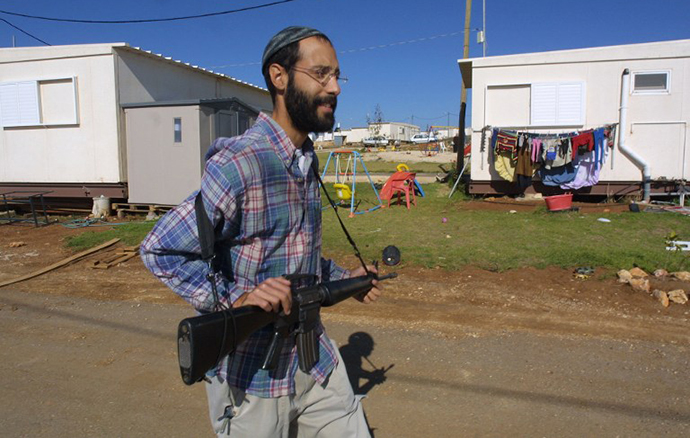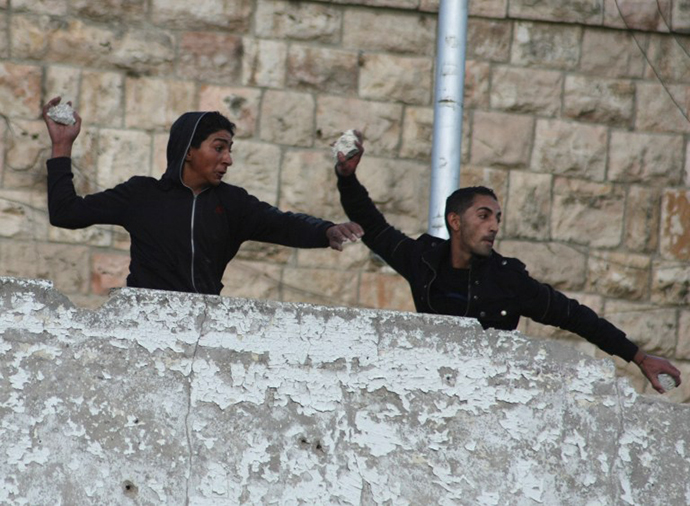Wild West Bank: Might makes right in Israel-Palestine settlement standoff
Mounting violence in the occupied territories between Israeli settlers and locals has forced the UN to consider compensating Palestinians who are driven off their land. Current Israeli law protects settlers, while depriving natives of their rights.
Rarely does a day pass without at least one report of violence
between Israeli settlers and Palestinians. The Office of the
United Nations High Commissioner for Human Rights is believed to
be working on a plan to compensate Palestinians harmed by Israeli
settlers in the West Bank. The plan could help offset the
apparent bias in Israeli law concerning settlers and
Palestinians.
Israeli settlers have forced the government to enact the ‘Dromi Law’ in the West Bank – Shai Dromi was an Israeli farmer who, in an act of self-defense, shot and killed a trespasser and wounded 13 others. He was eventually acquitted of manslaughter. A law was later named after him, one which supports the notion that any actions taken against intruders are considered self-defense.
Now, the question of when Israeli settlers can and cannot legally use a gun to protect themselves and their property are being reconsidered: The Dromi Law has the potential to make pulling the trigger an even more attractive option for settlers.
Many fear these tensions could even result in a Third Intifada, especially since settlers have apparently been given the right to shoot first and ask questions later.

One country, two nations, unequal rights
In the West Bank, armed Israelis and Palestinians were never equal before the law, but now even less so: “A settler and a Palestinian living side-by-side who commit the same crime are put through entirely different legal systems,” lawyer Emily Schaeffer told RT.
Two decades ago, Israeli settler Jacob Taylor moved to the disputed Hebron Hills from South Africa along with 74 members of his family. Jacob claims that more than 600 of his pedigree sheep have been stolen from his farm by Palestinians.
“I have got a rifle that the army supplies me with, but I don’t go out and walk with a rifle, except at nighttime like when they stole my sheep. I took the rifle and went out, but it’s for self-protection,” Taylor told RT.
The Palestinians see things differently: “I was in the mountains feeding my sheep in our land and the settlers attacked me and hit me on my back,” Palestinian shepherd Hammed Ali Shawahen said. “They did not just attack me, they attack everybody every day, they attack people and trees and animals. They are trying to take our lands but we will not let them.”

Under current Israeli law, Taylor’s case will be heard in civil court, while Hammed’s must be heard in a military count. “The Palestinian could be barred from seeing a lawyer up to 30 days. The Palestinian could be held and interrogated for 8 days before got to a judge, after which the detention could be extended over and over again,” Schaeffer explained.
By comparison, an Israeli settler would be allowed to consult with his lawyer immediately, and “would have to be brought before a judge in order to continue interrogating him within 24 hours. And he would have all the sets of due process that we don't see in the military courts,” Schaeffer said.
The Israeli colonization of the West Bank has seen countless incidents of violence over the years, and the settler population has always been well-armed. With this new law enshrining Palestinians’ inferior status in the legal system, the scales may tip even further in favor of the Israeli settlers.














